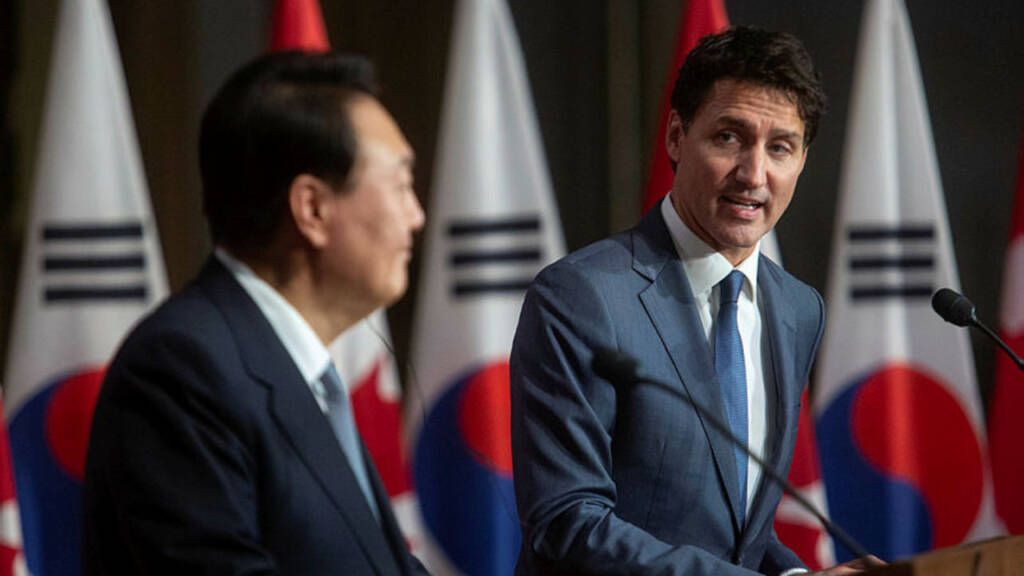In a surprising turn of events, South Korea has sought Canada’s assistance in reducing its reliance on China for critical minerals. The move comes as South Korea aims to bolster its semiconductor and electric vehicle battery sectors, which currently rely on China for a staggering 80% of their supplies. However, the irony cannot be ignored: Canada itself is heavily dependent on China. So, can Canada truly be the savior of South Korea, which is looking to break free from China’s influence?
A Glaring Dependence:
Reports indicate that Chinese firms have been involved in a whopping 89 acquisitions and investments in Canada’s metals and mining industries over the past decade. Shockingly, these transactions encompass businesses linked to the 31 essential minerals that Canada has identified. This indisputably reveals the deep-rooted dependence of Canada on China, casting a shadow of doubt on Canada’s ability to assist South Korea in reducing its reliance on the very same country.
In an interview with Global News, South Korea’s Ambassador to Canada Lim Woongsoon said Trudeau and South Korean President Yoon Suk Yeol will sign a memorandum of understanding to expand the trade of critical minerals and make it easier for youth from both countries to participate in exchanges.
“We are like minded countries. We share the same values like freedom, human rights and democracy,” said Lim. “There is no geopolitical risk in fostering our partnership.”
China’s Dominance in Rare Earth Minerals:
China’s stranglehold on the global supply of critical rare earth minerals cannot be understated. With over 38% of the world’s total reserves and the title of the world’s largest producer of rare earth metals, China unquestionably dominates this sector. These minerals are indispensable for cutting-edge technologies employed in various high-end industries today.
It’s no secret that Canada’s mining industry finds itself ensnared in the clutches of both the United States and China. However, the recent focus has been on the extent of China’s influence. Chinese firms’ involvement in numerous acquisitions and investments in Canada’s metals and mining industries has severely compromised Canada’s position. It is now grappling with a loss of control over its own mining industry, a worrying situation that raises questions about Canada’s ability to help South Korea reduce its dependence on China.
A Mockery of Assistance:
With China firmly established as the dominant force in the global supply of critical minerals, Canada’s promises of assistance appear more like a charade than a genuine solution. South Korea’s hopes of diversifying its sources and reducing its reliance on China may be nothing more than wishful thinking if Canada cannot extricate itself from its own dependence.
Also Read: Bill C-11 will take Canada one step closer to Chinada
The Need for Genuine Solutions:
While South Korea’s decision to explore alternative sources of critical minerals is commendable, it is crucial to approach the matter with pragmatism. Relying on a country that itself relies heavily on China does not seem like a viable strategy. Instead, South Korea should explore other potential partners and diversify its sources to ensure true independence from China’s influence.
The Canadian mining industry’s entanglement with Chinese firms underscores the complexity of the situation and Canada is clearly not the best choice of South Korea to get rid of Chinese dependence.
Promising to help South Korea reduce its dependence on China while being dependent on China itself is a hollow gesture. Canada must take concrete actions to reduce its reliance on China and then show its ‘leadership’. Empty promises and half-hearted efforts won’t cut it. It’s time for Canada to step up and do better. The world is watching.
https://www.youtube.com/watch?v=RQVMuV_hwgM
